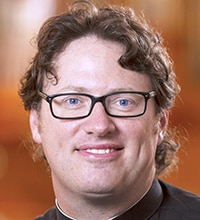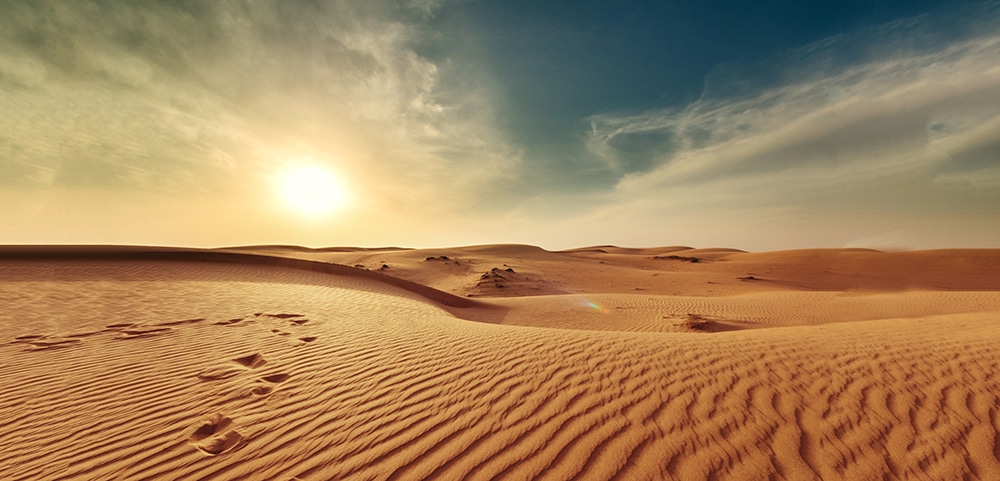
Augustine was talking about his own arrogance, why for so many years he refused to follow Christ. He was full of himself; he relied too much on his ability, the strength of his own ambition. A talented man, more talented than most, he was an overachiever. But that’s precisely what blinded him: his strength became foolish pride. Which is what, as he said many times after he’d come to faith, he had to be stripped of: his pride. He had to let go of it — his blinding arrogance — in order to see something other than himself, the true God he couldn’t see until he decided to see something bigger than himself.
| December 4 – 2nd Sunday of Advent |
|---|
|
Is 11:1-10 |
And it was painful, this process. To be stripped of all the props of one’s personality, one’s social position, one’s former certainties, one’s emotional assurances, and sometimes one’s relationships: it’s terrifying. Augustine likened it to having his heart torn out of his chest. But still, it was a mysteriously good pain. “As I grew more and more miserable, you were drawing nearer,” he said. Of course, this wasn’t misery for misery’s sake; the pain surrounding his conversion, which he described, wasn’t masochism. It was the burning away of sinful willfulness. It was the pain that often comes with losing one’s illusions, the pain of looking at God instead of oneself.
Hence, the image of the empty desert, the lone voice crying out. As the author, Erasmo Leiva-Merikakis, in his brilliant commentary on Matthew, put it, “Every truly new word begins in the desert, the uninhabited land where nothing is taken for granted and where nothing pretends to be what it is not.”
To hear the word of God, to welcome God at all, first, we must rid ourselves of noise and distraction, not just the noise of the world but also the noise of our own internal rambling — the rambling of self-justification, self-centeredness, self-praise. But how do you quiet this noise? Do you pray? Does your prayer include silence? Do you tell yourself why it’s OK for you to miss Mass, for you not to give to the poor and the Church, for you not to love like Christ in this circumstance or that? Do you excuse yourself from practicing Catholicism more than you actually practice it?
That’s why the desert matters, why this Advent you should find a desert away from such self-rationalizing noise so that you can find a place where you can ask yourself these probing, sobering and sometimes painful questions. This is why Advent’s so important; spiritually it’s a practice run for the Judgment. It’s an opportunity for us to realize how silly all our excuses are, to repent of them and do better. And really, it can only happen in some sort of desert: a quiet place of prayer, an empty parish church, wherever you can be honest with yourself before God.
But also note the Baptist’s fire for the Pharisees and Sadducees. Let’s be brave enough to see in them ourselves in all our Catholic pride. “I went to Catholic school.” “I’m a bishop.” “I gave to the capital campaign.” “I go to daily Mass.” “God can raise up children to Abraham from these stones,” said the Baptist (Lk 3:8). It’s the humble servant God prefers, not the one quick to boast of his or her credentials or expertise or authority. It’s a lesson as important as the desert. Do you think the advent of Christ your birthright? Do you expect Christmas on command? Can God no longer surprise you because you’ve seen it all before?
The witness of John the Baptist was shocking; it was provocative; he insulted many of those who came out to see him — “You brood of vipers!” (Lk 3:7). What if God were to give us some prophet to say that very thing to us today? How would we receive such a prophet? Maybe that’s what we actually need; with all this talk of renewal and revival and reform, maybe that’s what we need before any of it — to find the desert again and a prophet fiery enough to shame all our nonsense, whose words are hot enough burn us with the truth.
But do we Catholics want this? Do we want the desert, its prophet and fiery truth? I don’t know. The answer to that question isn’t clear to me at all. But, of course, I can only answer for myself. You, too. This painful question of Advent.
Father Joshua J. Whitfield is pastor of St. Rita Catholic Community in Dallas and author of “The Crisis of Bad Preaching” (Ave Maria Press, $17.95) and other books.





